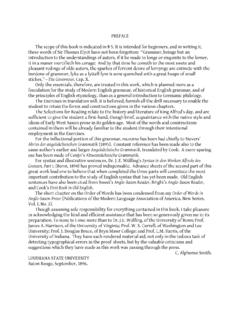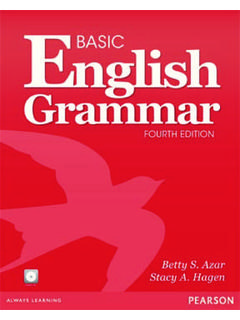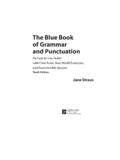Transcription of Free English Grammar - anglais-facile.com
1 1 GrammarPresented FreeEnglishGrammar Jonathan Lewis 2011all rights reserved worldwideYou are free to distribute this ebook to as many people as you wishYou may print this ebookYou MAY NOT sell this ebookYou MAY NOT publish this book or parts of this book on the netVous pouvez distribuer ce livreVous pouvez l'imprimerVous NE POUVEZ PAS vendre ce livreVous NE POUVEZ PAS publier ce livre en entier ou en partie sur internet2 you for downloading this book. I hope it will help you to understand better how the English language is a big difference between understanding the Grammar of a language and being able to speak that language don t need to understand how a car engine works in order to drive a car.
2 And you don t need to understand Grammar to speak a Grammar will, however, perhaps give you more confidence to speak, as you will be less afraid of making every Grammar rule has an exception, so the best way to improve your English is to practise as much as you was created to help people learn English for free . If your first language is French, you will find explanations of the points covered in this book in both French and English on the Jonathan LewisJonathan Lewis has taught English in France for ten years, and has worked for the French ministry of education (Education Nationale) as a teacher and examiner.
3 In his native England, he used to train young people in sales and business administration. He doesn t like the traditional Grammar -based approach to language learning, but prefers to teach communicatively, that is, by getting to students to talk in class, while monitoring their use of language. Improve your English DailyI highly recommend Gymglish to those who want to improve their English by doing exercises every day. It's an enjoyable way to learn you receive an e-mail every day with some reading and an exercise to do. For a free seven-day trial, click your English with meIf you want to take conversation lessons with me, feel free to contact me by e-mail: Wherever you are in the world, we can talk face to face using Skype.
4 3 of am You are (to be) am doing (present progressive) like/do/go (present simple) got (possession) was/you were (be simple past) did/worked/went (simple past) was doing (past progressive) have done (present perfect) done/was done (passive voice) to (finished actions) Get/be used to (changing situations) do (future) to (planned future) done (past perfect) (articles, quantities) (quantities) lot (quantities) (ability/permission) to (obligation/prohibition) (adjectives) (comparatives and superlatives) (advice, recommendations) (pronouns, possessive adjectives) (questions 1) much/many (questions 2) (time prepositions) would you do?
5 (conditionals) Click on the play button to watch a video4 1: I am (I m) This is John. He s American, he s thirty-five, he s a are are you?To make questions, change the verb and the subject:Positive Question He is FrenchIs he French?You are lateAre you late?They are nursesAre they nurses?Am/is/are are the present forms of the verb to be. We call this verb a state verb . State Age: I am thirty Nationality: I am French Status: I am single/married/divorced Profession: I am a teacher/secretary/manager Physical state: I am tired/hungry/cold Emotional state: I am happy/sad/excited5 am (I m)You are (you re)He is (he s)She is (she s)We are (we re)They are (they re)NegativeI am not (I m not)You are not (you re not)He is not (he s not)She is not (she s not)We are not (we re not)They are not (they re not)I'm JohnI'm a salesmanI'm 35I'm singleI'm AmericanI'm interested in politicsUnit 2.
6 I am doingThe verb to be can be used as an auxiliary verb before other verbs. The verb that follows always has the ending -ing . to be represents a present state, so when it s followed by a verb (-ing) it refers to a present activity. I m a teacher, but I m not teaching now, I m preparing a lesson Janet is wearing a pretty dress today Take an umbrella, it s rainingSpellingNote the following spelling changes:write writingrun runninglie lyingsit sittingcome comingswim swimmingdance dancingNegativePlace not after the auxiliary: I m not sleeping They re not working -or - they aren t working She s not reading - or - she isn t readingQuestionsChange the order of words: Are you sleeping?
7 Is he playing? Where is she going?Some verbs are not usually used in the present progressive. Often, these verbs don't describe physical actions: know understand agree trust prefer hate appreciate suppose want like love rememberThe state verb 'to be' is sometimes used in the present progressive: Ignore him he's just being silly They said they can't help us, but I think they're being is reading a bookThey are runningThe sun is shiningUnit 3 : I like/do/goThe Present Simple:PositiveNegativeQuestionsI likeYou likeHe likesShe likesWe likeThey likeI don t likeYou don t likeHe doesn t likeShe doesn t likeWe don t likeThey don t likeDo I like?
8 Do you like?Does he like?Does she like?Do we like?Do they like?The present simple is used for things in general, and things that happen sometimes or always: The sun rises in the east I work from nine till five I like chocolate I go to the cinema on SaturdaysTo indicate frequency, we use these adverbs:always usually often sometimes rarely never100% 0%examples: I always go shopping on Fridays I usually have coffee with my breakfast, but sometimes I have tea I never watch American movies I often buy a newspaper on my way to workPresent simple spellingNote the following spelling changes.
9 I watch she watchesI kiss he kissesI wash she washesI go he goes I judges he judgesI study she studiesI try he triesI do she doesPresent simple questionsWe use the verb do as an auxiliary when we ask questions: Do you read a lot? Does she like her job? Do you always arrive early? What do you usually do in your free time? Do they live here?7 4have/have gotShe has blue eyes and black hair=She s got blue eyes and black hair (has got)For possession, have and have got are the sameHave got in questions Have you got the time? Has she got a car?Have got in negatives I haven t got a car He hasn t got a job8 ve got a cold and a high temperatureUnit 5I was/you wereThe simple past of the verb 'to be'Present: am/is past: wasPresent: are past: were Yesterday, I was sick She lived in London when she was young Were you on time for the meeting?
10 No, I wasn t I was five minutes late9 wasYou wereHe wasShe wasWe wereThey wereQuestionWas I?Were you?Was he?Was she?Were we?Were they?NegativeI wasn t (n t = not)You weren tHe wasn tShe wasn tWe weren tThey weren tUnit 6 Past simple I did/worked/wentThey watch television (present simple) Yesterday, they watched television (past simple) Past Present FutureI went I worked I stoppedEnglish verbs can be divided into two groups regular and irregular. In the past simple, regular verbs end in ed ; they do not change according to the subject: I worked You worked He worked She worked We worked They workedIrregular VerbsThese verbs are called irregular because they do not end in ed like regular verbs.









